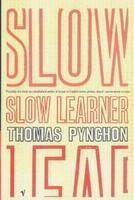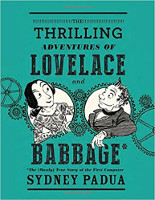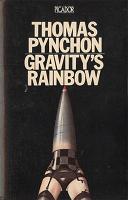 What do you do if you were born in Israel, and have grown up on a Kibbutz, which you left to travel at the age of 15? If you have lived in South Africa, Laos, Vanatu, the UK, and many places in-between since? Lavie Tidhar’s answer is that you write about what used to be home - about Israel, and about what the future brings. Actually, that’s quite unfair. He has written about topics as far and wide as he has travelled, he has headed up the award-winning World SF Blog, has edited the first 3 instalments in the Apex Book of World SF series, and has published a long list of novels, collections, novellas, graphic novels, and non-fiction of his own writing. I guess the one thing you really cannot accuse him of is being a white, male, and UK/US centric writer. OK, he cannot help the male bit, but I’m sure you see what I mean!
What do you do if you were born in Israel, and have grown up on a Kibbutz, which you left to travel at the age of 15? If you have lived in South Africa, Laos, Vanatu, the UK, and many places in-between since? Lavie Tidhar’s answer is that you write about what used to be home - about Israel, and about what the future brings. Actually, that’s quite unfair. He has written about topics as far and wide as he has travelled, he has headed up the award-winning World SF Blog, has edited the first 3 instalments in the Apex Book of World SF series, and has published a long list of novels, collections, novellas, graphic novels, and non-fiction of his own writing. I guess the one thing you really cannot accuse him of is being a white, male, and UK/US centric writer. OK, he cannot help the male bit, but I’m sure you see what I mean!
But to come back to it - for Central Station, the novel/collection at hand, he returned his focus to the country, or at least the area, he was born and brought up in.
The Central Station of the title is a spaceport, a huge edifice reaching up towards the Stratosphere, providing a landing spot for the traffic coming in from the Moon, Mars, the Asteroid belts, and more exotic, ‘frontier’ type locations. It stands over and links the twin cityscapes of Arab Jaffa and Jewish Tel Aviv, and seems to have accumulated its own diaspora of immigrants from Africa and Asia at its base; what we find in the stories are families of mixed heritage, who have been here for generations, who helped build Central Station, and whose lives are intertwined with it.
The rest of the environment is even more fascinating - there are Robots living here, as full members of society (someone describes them as the missing link and an awkward evolutionary step between humans then the fully digital ‘Others’); there are Robotniks, essentially cyborged Israeli soldiers from the old wars, without memories of who they were before, and now without purpose or support, begging for spare parts and fuel. And we have the Others, purely digital entities, beyond human comprehension, but in some cases linked up with humans, making the resulting entity a bit of both but neither…
People have ‘nodes’ installed, linking them into the all-pervasive network stretching the human diaspora across the solar system, and the ongoing ‘Conversation’ transversing it; humans speak a number of new languages, mentioned are Asteroid Pidgin, and Battlefield Yiddish (mainly the Robotniks). The Others have their very own high bandwidth language no-one else can follow.
The entire environment is brought beautifully to life for the reader - not with long descriptions, but with evocative moments and little key points thrown in. It positively brims with ideas and concepts, painting with sights and smells a believable, tangible future world which you can taste and feel, and containing a sparkling cast of characters, each with their own life and drives.
The structure of the book is a series of short stories, which on the one hand can stand on their own (all but 2 were previously published individually), but which loosely connect on tangents and topics, intertwine, and trace a picture of something bigger. No, I’m not going to tell you what it is, but overall this is the story of a beginning, or a change.
Overall the set-up greatly reminded me of Ian McDonald’s Cyberabad days, whilst Central Station itself is more than a little reminiscent of Somtow Sucharitkul’s Mallworld - both are classics as touchstones, and I think he does a very good job living up to them!
The book is full of references to other, frequently ‘classic’ SF. As an example - there is a mention from a Robotnik about someone using Sand Worms as weapons in the Middle East; never mind the robot priest R. Brother Patch-It praying: “Our maker who art in the zero point field, hallowed be thy nine billion names…”
The individual stories and strands are told from numerous viewpoints, and follow a variety of protagonists - we see the movers, we see the reacting ones, and in-between those who live in the moment. The strands themselves are winding around each other, touching, parting. Like a tapestry, where no single strand tells the story, but together they draw a picture.
The book starts with a Prologue placing this - for us - future story into a different frame; we are being told and shown history, a key point in the development of humanity on its way to the stars, a documentary. And I felt that, in the end, it didn’t fully deliver on this, it stopped short and left me hanging with part of that story untold.
But this is a minor quibble, and might just be me… overall I think this is a great book, most likely one of the highlights of the year, and comes highly recommended for everyone who enjoys modern, intelligent Science Fiction in an unusual setting.
Title: Central Station
Author: Lavie Tidhar
Reviewer: Markus
Reviewer URL: http://thierstein.net
Publisher: Tachyon Publications
Publisher URL: http://www.tachyonpublications.com
Publication Date: May 2016
Review Date: 160604
ISBN:9781616962159
Pages: 188
Format: ePub
Topic: Science Fiction
Topic: Sociology














